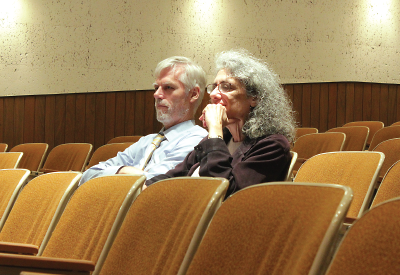‘Restraints Are Not a Benign Intervention’
Abstract
Severe mental illness can be deeply foreign to people who have never experienced it. Psychiatrist Kenneth Wells, M.D., co-author of the two-act opera based on the memoir The Center Cannot Hold by Elyn Saks, J.D., Ph.D., said he worried that some of the most intense scenes—as when Saks shouts the words to Beethoven’s Fifth Symphony to ward off the demons in her mind—might evoke laughter. But the audience at last summer’s performance at UCLA was composed of many patients, family members, and clinicians who knew better.

“It turns out some in the audience were terrified,” he said. “Many told me that it felt very real and very frightening as the performance allowed them to get into Elyn’s mind. I hadn’t anticipated that.”
Saks herself had the same reaction. “I have to say that watching it brought back painful memories—seeing how I was treated and how scared I was being restrained,” she told Psychiatric News. “Ken did a remarkable job. The opera accurately portrays the experience of having an acute psychosis and being treated in an involuntary setting.”
Today Saks is the Orrin B. Evans Professor of Law, Psychology, and Psychiatry and the Behavioral Sciences at the USC Gould School of Law. “Restraints today are seen as a treatment failure, and some jurisdictions have taken strenuous steps to minimize their use,” she said. “It is said that restraints keep people safe, but in fact people have been injured or died while in restraints. It’s not a benign intervention.” ■



